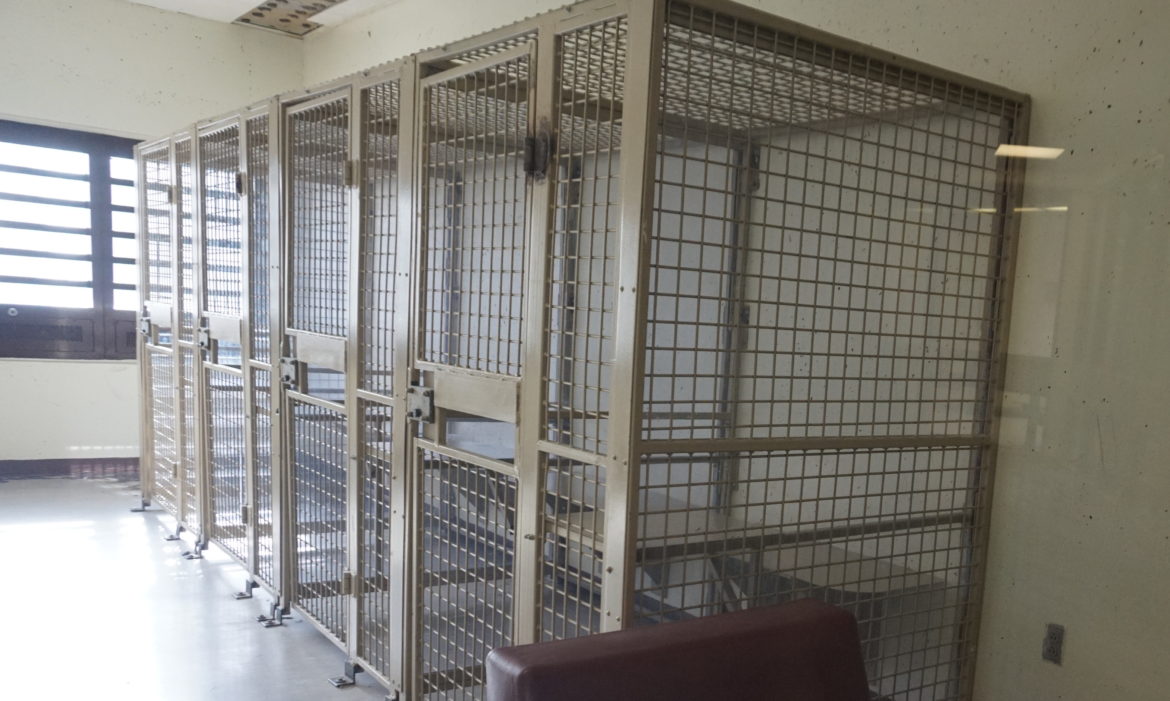About 17 percent of the hospital beds for the nation’s most disabled and dangerous psychiatric patients were eliminated in the last five years — including in New Hampshire — at the same time demand for them skyrocketed, according to a new study by the Treatment Advocacy Center.

Ken Norton, executive director of NAMI-NH
Going, Going, Gone: Trends and Consequences of Eliminating State Psychiatric Beds, 2016 reports that the nation’s psychiatric bed shortage has deteriorated to “beyond disastrous.”
New Hampshire has lost 31 psychiatric beds since 2010, leaving the state with 158, the report said. This, as the number of patients waiting for a bed at the New Hampshire Hospital, the state’s public psychiatric facility, continues to climb.
Ken Norton, executive director of the National Alliance on Mental Illness-NH, said a new 10-bed wing at the New Hampshire Hospital will open July 1, the day after Cheshire Medical Center in Keene closes a 12-bed psychiatric unit.
“That’s a net loss of two beds,” Norton said. “Yesterday there were 33 adults and 20 children waiting in hospital emergency rooms for psychiatric beds.”
The day before tied the record for children waiting in hospital emergency rooms for a psychiatric bed. There were 25 children waiting that day in emergency rooms, Norton said.
“I’m very concerned,” Norton said. “That report is very upsetting on how we treat people with mental illness.”
Nationally, the report found that 37,559 staffed beds remain in state hospitals. “Adjusted for population growth, this represents a 17 percent reduction in the bed population since 2010,” the report said.
Jake Leon, spokesman for the state Department of Health and Human Services, said the losses resulted from the closure of the Anna Philbrook Center for children with acute psychiatric problems, and other ward closures at the New Hampshire Hospital in Concord. Leon said the new 10-bed wing, which has been held up for a year because of staffing issues, will finally open in July.
New Hampshire’s psychiatric bed shortage comes two years after a federal lawsuit settlement expanded mental health services. It increased supported housing, assertive community treatment and employment programs. It also introduced mobile crisis services in the Concord, Manchester and Nashua areas to divert people from hospitals.
But the number of mentally ill people being warehoused in hospital emergency rooms awaiting beds at the state psychiatric hospital was just beginning to grow when the lawsuit was filed, Norton said. And it has just kept growing since and was never addressed in the lawsuit.
The settlement agreement also doesn’t apply to children. “And their numbers have been climbing,” Norton said.
One family recently told him about waiting with their teenage son in a hospital emergency room hallway for four days for a bed at New Hampshire Hospital to open up.
“It’s just really tragic,” Norton said.
It’s not necessarily about building more psychiatric hospitals, he said. “I think we need to really sit down and do some serious strategic planning, look at the numbers and see how much the population has grown since the new hospital was built in 1990,” Norton said.
The Treatment Advocacy Center in Arlington, Va., is a national nonprofit organization dedicated to eliminating barriers to the timely and effective treatment of severe mental illness. Its report, which surveyed 50 states, also took note of how New Hampshire houses some mentally ill patients at the Secure Psychiatric Unit at state prison even though they haven’t committed a crime.
“In a bizarre display of how thoroughly mental illness is returning to its status as a criminal condition, New Hampshire authorizes civil patients who have committed no crime to be treated inside the state’s Secure Psychiatric Unit—a prison,” the report stated.

Rep. Renny Cushing, D-Hampton
The report also mentioned Rep. Renny Cushing, D-Hampton’s proposed legislation to prohibit commingling the non-criminal with convicted criminal patients at the Secure Psychiatric Unit. The bill will be studied by a legislative committee this summer.
A Maine bill to authorize transferring some patients from the state hospital in Augusta to a prison psychiatric unit like New Hampshire’s fell short of passage by one vote, the report said. They were also people who had not been charged with or convicted of crimes.
Some of the Treatment Advocacy Center findings include: The survey of the states found only 3.5 percent of the state hospital beds that existed in 1955 were still in operation by the first quarter of 2016. Of the remaining beds, approximately half were occupied by patients charged with or convicted of crimes, leaving about 6 state hospital beds per 100,000 people for civil patients.
“These beds represent the psychiatric equivalent of ICU patient beds. We are forcing acutely ill people to suffer terribly instead of making treatment available the way we would for any other medical condition,” said John Snook, executive director of the Treatment Advocacy Center. “The loss of beds has been disastrous for our nation and those most in need.”
The study detailed the consequences from the bed shortage, including near-universal “boarding” of psychiatric patients in hospital emergency rooms, widespread waiting lists for hospital admission from jails and prisons, and pending or threatened civil rights lawsuits against states from coast to coast.
Treatment Advocacy Center recommendations:
A moratorium on eliminating any of the remaining state psychiatric beds, a federal initiative to determine a safe minimum to meet inpatient need, a congressional effort to identify and reform federal policies, improved data collection to support evidence-based public policies, and increased use of diversion strategies that reduce hospitalization rates.
“This report should serve as a wake-up call to decision makers that our failed mental health policies must be reformed,” Snook said. “There is blood on the hands of every legislator who chooses to continue ignoring this emergency.”





